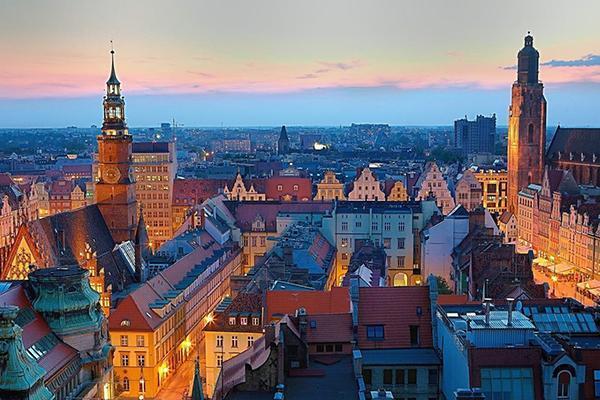The European Commission (EC) has indicated its plans to help generate funds for a number of European cities who have expressed a desire to erect 'smart' streetlamps in their respective cities across the EU. Research has uncovered that local governments in the EU spent around €7.6bn to light public street lights in 2015. However, the bills could be slashed by up to 70% if local authorities agree to pay extra to install new 'smart' lighting systems aimed at energy efficiency.
The European Commission has declared its support for the initiative and is actively trying to help cities find funding for the project. The proposal will see the EC and local government authorities embark on a mission to setup 10 million 'smart' streetlamps around cities in the EU by 2025. At present, only a handful of European cities have 'smart' streetlights erected.
The EC is encouraging cities to put more of its finances into internet-connected infrastructure. The lampposts contain high-tech LED lightbulbs that are adjoined to a database which informs operators when the lights need to be replaced or repaired. In addition to this, the 'smart' lighting can advise whether it should be dimmed on a sunny day, and in some cases are fitted with Wi-Fi capabilities. However, the major stumbling block in the mass deployment of this technology is governments find the price tag too expensive to implement on a large scale.
Officials currently working on the executive's smart city strategy concede that they do need to help local governments find funds for the expensive infrastructure upgrades if they're to realize their goal of becoming smart cities. The EC has funds designated for local governments that engage in technological programs that meet EU energy efficiency or lowered emission goals. Horizon 2020 is a smart city program that is earmarked to develop energy efficiency and low-emission transport systems. However, for other cities, high-tech infrastructure which is expensive remains out of reach. 'Smart' streetlights that possess internet connected functions can cost up to €8,000 each.
Governments on a global basis are beginning to show a greater interest in 'smart' streetlamps primarily because they're an easy starter technology. Governments are enticed by the prospect of lower energy bills if lamps with sensors and internet connection live up to their promise of being more efficient.
German city Munich has announced plans to install new streetlamps Wi-Fi connections to a city database, sensors and adaptive lighting features. Replacing basic infrastructure with internet connection raises more issues than just money according to some senior city planners. Government officials in Munich are mulling over the question of whether the city will own the data produced by the 'smart' lamps - or will it be handed to lamp manufacturers and internet providers to analyze.
Elizabeth Merk, a city planner who is directly involved in smart city developments in Munich wants clarification in relation to the ownership of the 'smart' lighting. She said, "An important question for the future is 'Who is the owner of the lamp and who can govern these things behind the lamp?' Until now this is our mayor and I think it's good like that." She made the comments earlier this month at a smart cities conference run by the Think Digital series in Brussels.

